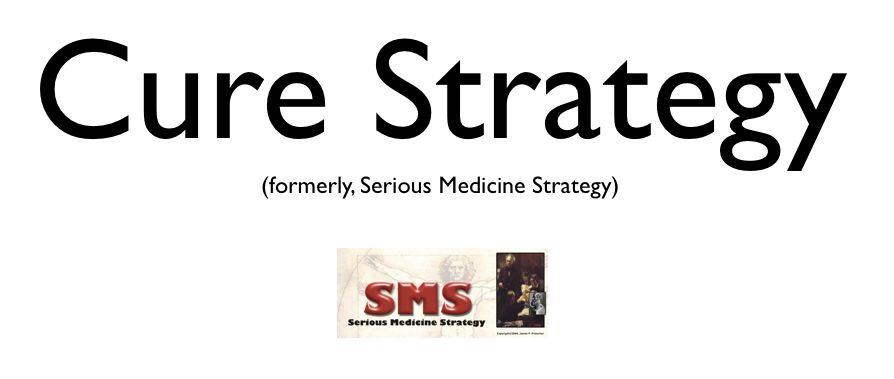Michele Bachmann continues to point America toward more hope in medicine. That's a good policy, and so, of course, it's also good politics. In a new interview with Newsmax's David A. Patten, she is asked about the Paul Ryan Medicare plan, and she both defends the cuts as necessary and then launches into a larger discussion of medical transformation. Here's the passage:
Newsmax: Democrats hope to make a major campaign issue out of Rep. Paul Ryan’s plan to reform Medicare entitlements through a voucher system. You have some concerns yourself about the plan…
Everyone knows that Republicans want to cut the growth of Medicare--so do, indeed, the Democrats. So the breakout issue is not on the finance side, but rather, on the science side. That is, cures and hope. Bachmann makes the same point on her campaign website:
Exactly. On top of Bachmann's many other strengths as a leader, she has articulated a transformative Jack Kemp-like issue that benefits all Americans. And the economic benefits, too, are incalculable, in terms of savings to government programs such as Medicare, as well as the jobs and wealth that would be created within the healthcare sector, selling not only to America, but also to the world.
Just as Jack Kemp provided the intellectual firepower to energize the US economy in the 70s, so Bachmann could do it again in the 21st century.
Newsmax: Democrats hope to make a major campaign issue out of Rep. Paul Ryan’s plan to reform Medicare entitlements through a voucher system. You have some concerns yourself about the plan…
Rep. Michele Bachmann: I absolutely agree with the Ryan plan on the trajectory of spending. My asterisk, if you will, on the Ryan plan is on how we message this idea of reducing federal government spending. What I believe is that we want to offer a better quality of life for senior citizens and people need to know that this plan should be called “The 55 and Under Plan.” We don’t want anyone who is 78 years of age, who is depending on Medicare, to think that their Medicare is going to be pulled out from under them. It won’t be. We’re talking about people who are 55 years of age and younger, who will actually have a far better plan to choose from than the one that will be de-facilitated, if we continue down Medicare. Also, I think it’s important that people know that we want to focus not just on numbers, and not just on insurance options, but we want to focus on cures -- cures for Alzheimer’s, cures for diabetes.
Those are the key words, as the bottom: "We want to focus on cures--cures for Alzheimer's, cures for diabetes." That's a breath of fresh air.
Those are the key words, as the bottom: "We want to focus on cures--cures for Alzheimer's, cures for diabetes." That's a breath of fresh air.
Everyone knows that Republicans want to cut the growth of Medicare--so do, indeed, the Democrats. So the breakout issue is not on the finance side, but rather, on the science side. That is, cures and hope. Bachmann makes the same point on her campaign website:
As President, I will work to unleash the power of medical innovation and personal choices. Because a cure is always better and cheaper than care – after all, it was once predicted we would spend billions a year on polio. I will empower your families and doctors, not unelected bureaucrats, to make the right decisions about the shape and form of your health insurance, your quality of care and your course of treatment. And I will push for greater competition in the healthcare market.
Exactly. On top of Bachmann's many other strengths as a leader, she has articulated a transformative Jack Kemp-like issue that benefits all Americans. And the economic benefits, too, are incalculable, in terms of savings to government programs such as Medicare, as well as the jobs and wealth that would be created within the healthcare sector, selling not only to America, but also to the world.
Just as Jack Kemp provided the intellectual firepower to energize the US economy in the 70s, so Bachmann could do it again in the 21st century.




